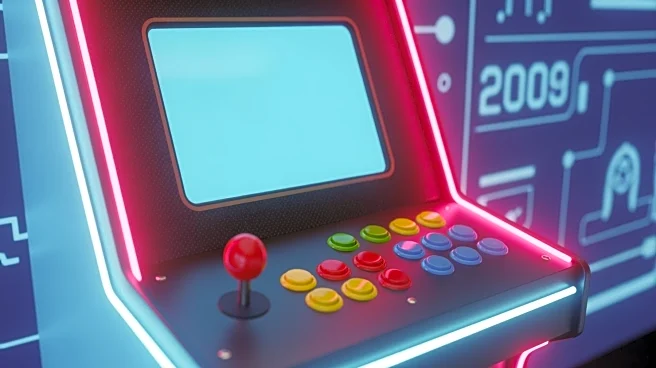What's Happening?
Nintendo has revealed insights into the development challenges faced with Donkey Kong Bananza, initially intended for the Nintendo Switch 1. According to co-director Wataru Tanaka, the game struggled to maintain
a stable 30 frames per second on the older hardware, which posed significant performance issues. The development team found it difficult to implement expansive stages and complex terrain interactions due to the limited memory capacity of the Switch 1. The game, now released on the Nintendo Switch 2, benefits from enhanced specifications, allowing it to run at 60 frames per second and support more destructible objects and intricate level designs. The transition to the newer console enabled the team to overcome previous technical limitations and deliver a more robust gaming experience.
Why It's Important?
The decision to move Donkey Kong Bananza to the Nintendo Switch 2 highlights the ongoing challenges and considerations in game development related to hardware capabilities. This shift underscores the importance of technological advancements in gaming consoles, which directly impact the quality and complexity of games. For Nintendo, this move not only ensures a better gaming experience for players but also sets a precedent for future game developments that may require more advanced hardware. The success of Donkey Kong Bananza on the Switch 2 could influence consumer expectations and drive demand for newer consoles, potentially affecting sales and market dynamics in the gaming industry.
What's Next?
As Donkey Kong Bananza continues to gain traction on the Nintendo Switch 2, it may pave the way for more games to be developed with similar technical requirements, pushing the boundaries of what is possible on current gaming consoles. Nintendo might also explore further enhancements and updates to the game, leveraging the Switch 2's capabilities. Additionally, the gaming community and industry analysts will likely monitor the game's performance and reception, which could inform future hardware and software development strategies for Nintendo and other gaming companies.










